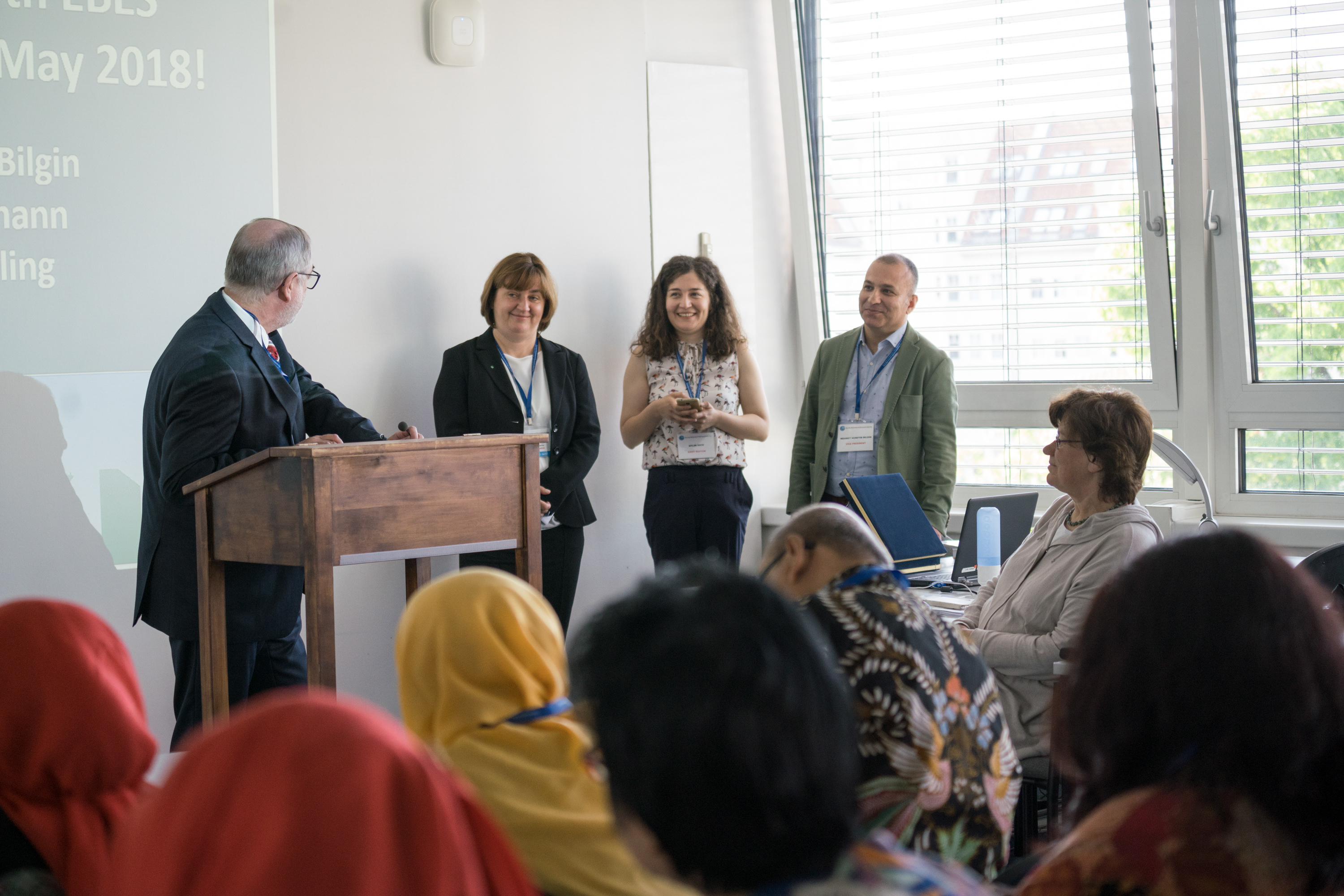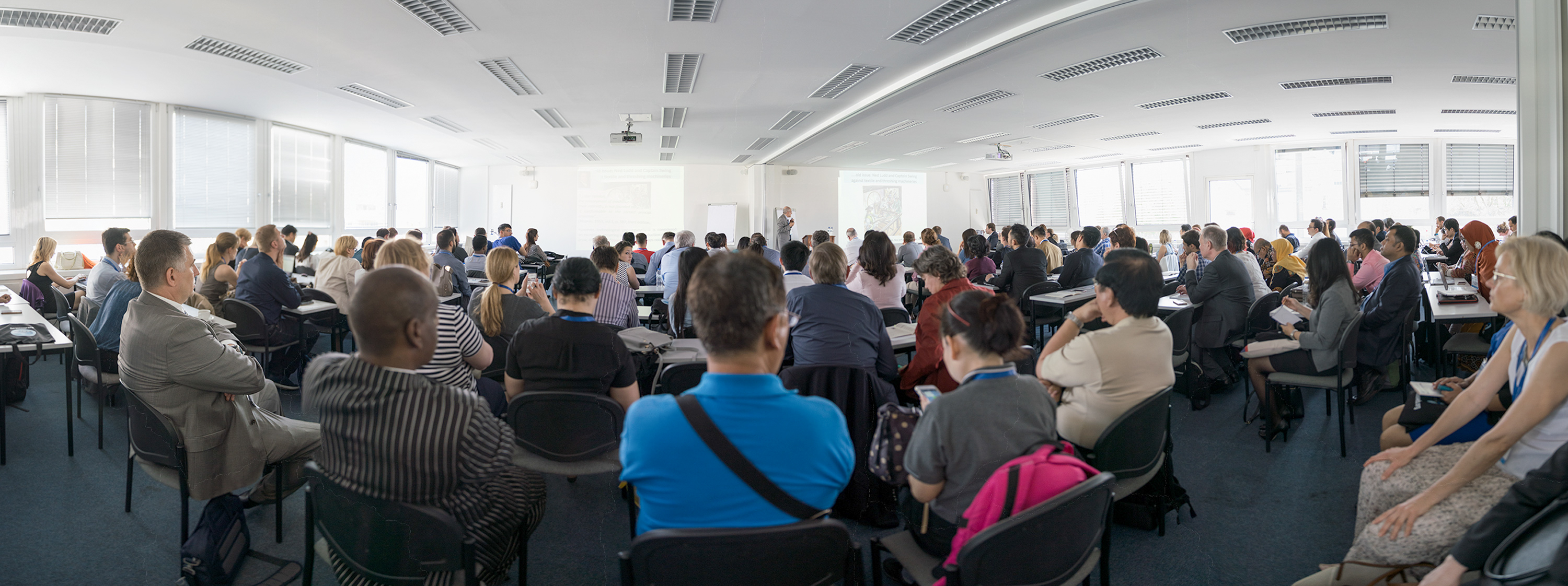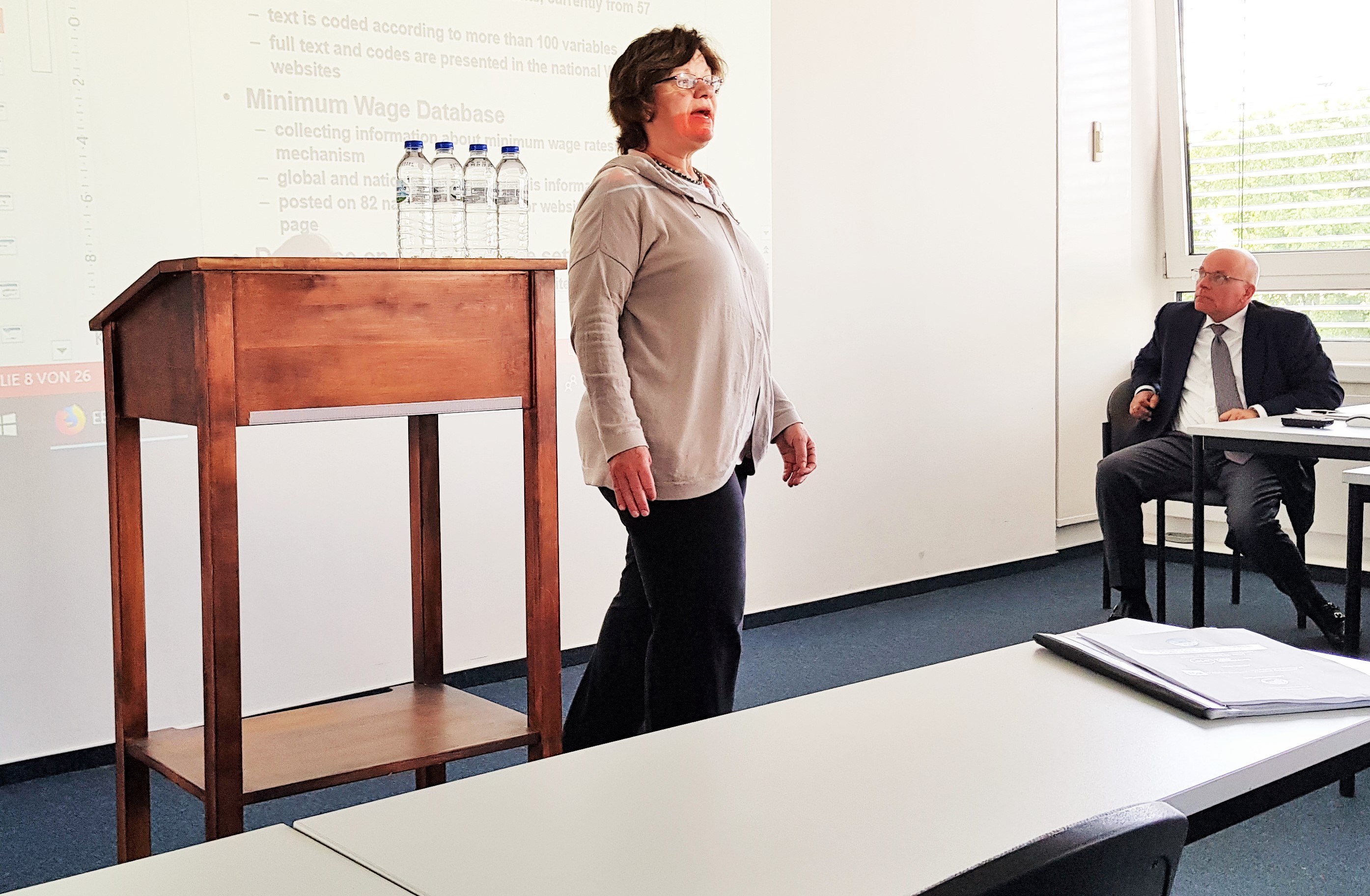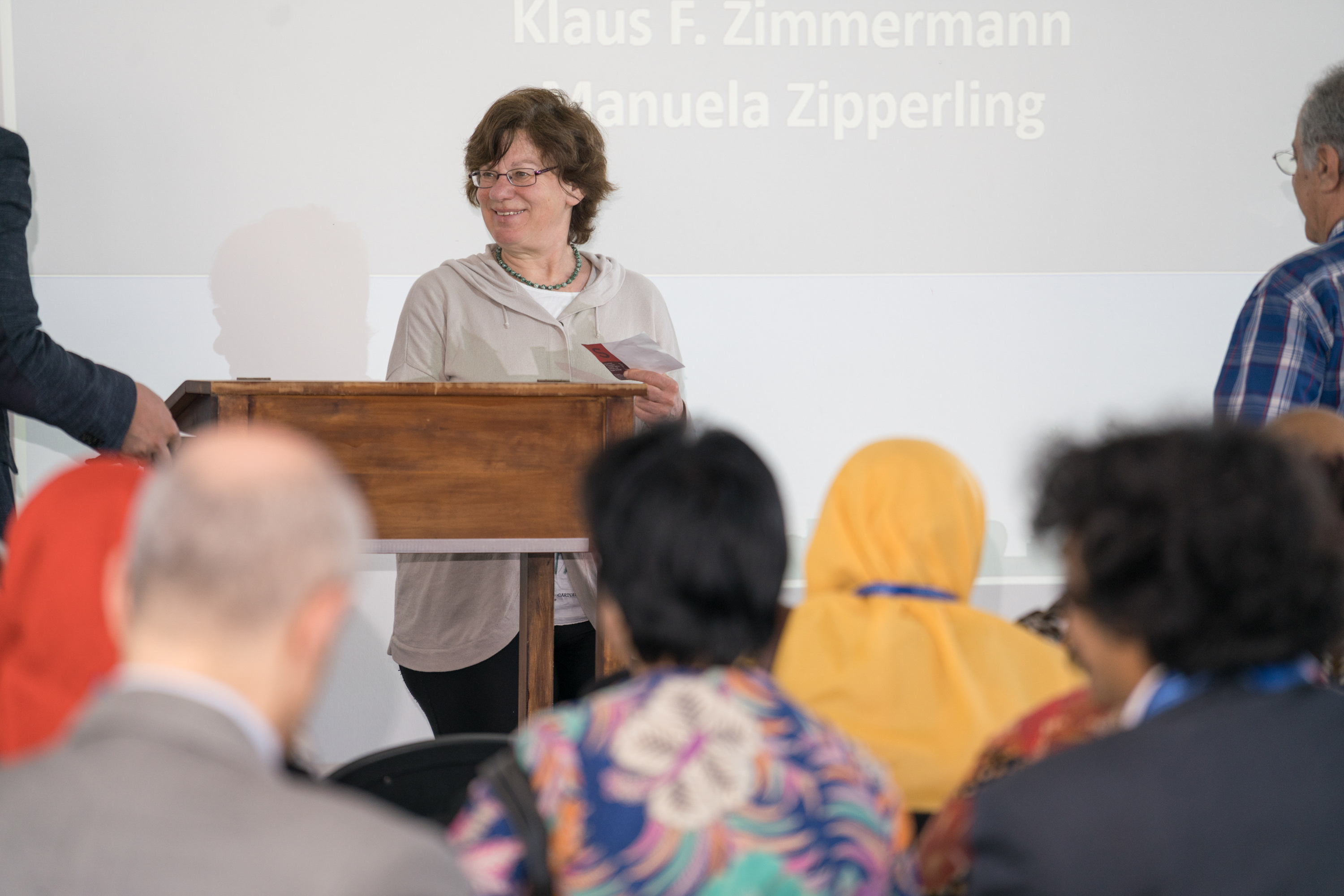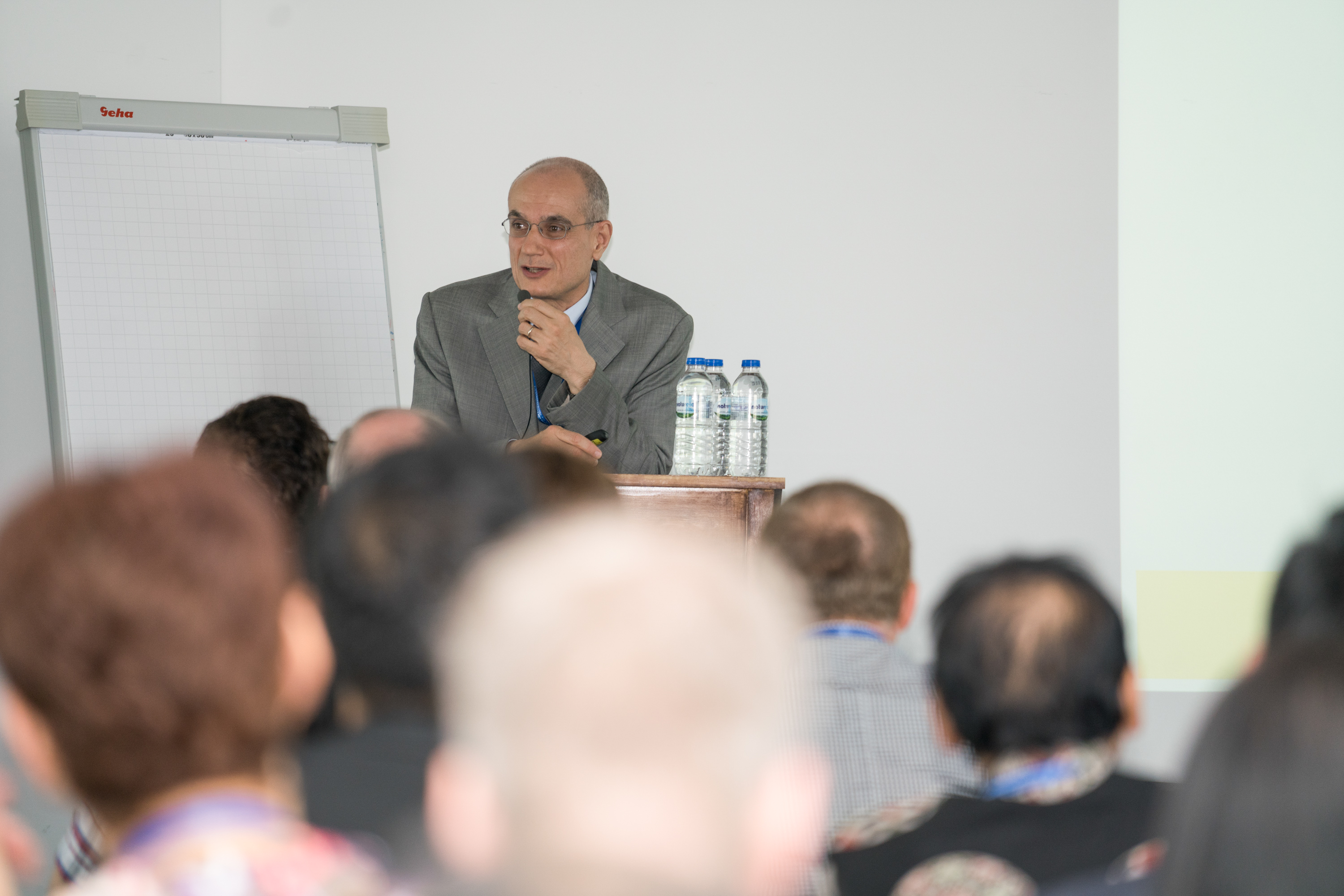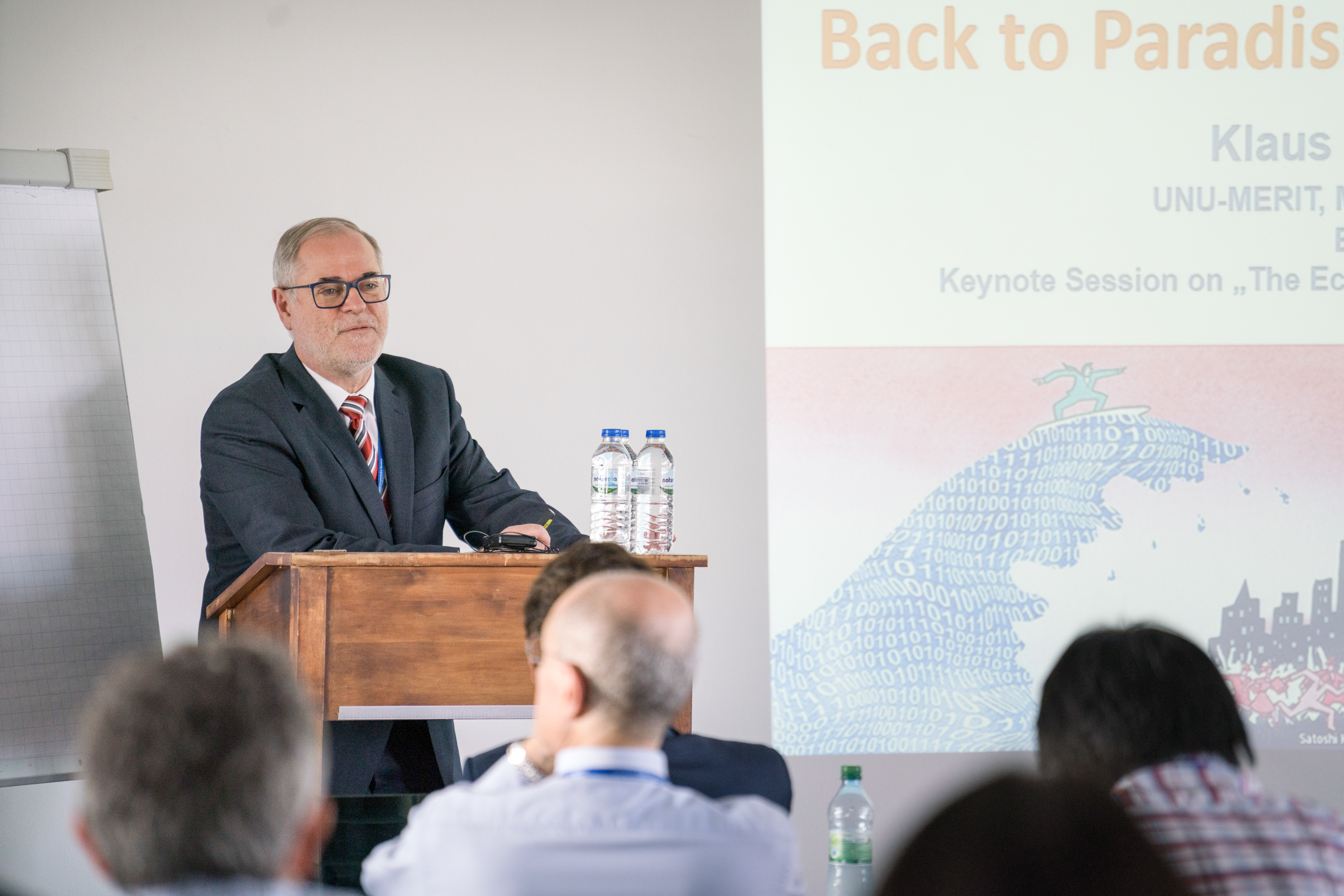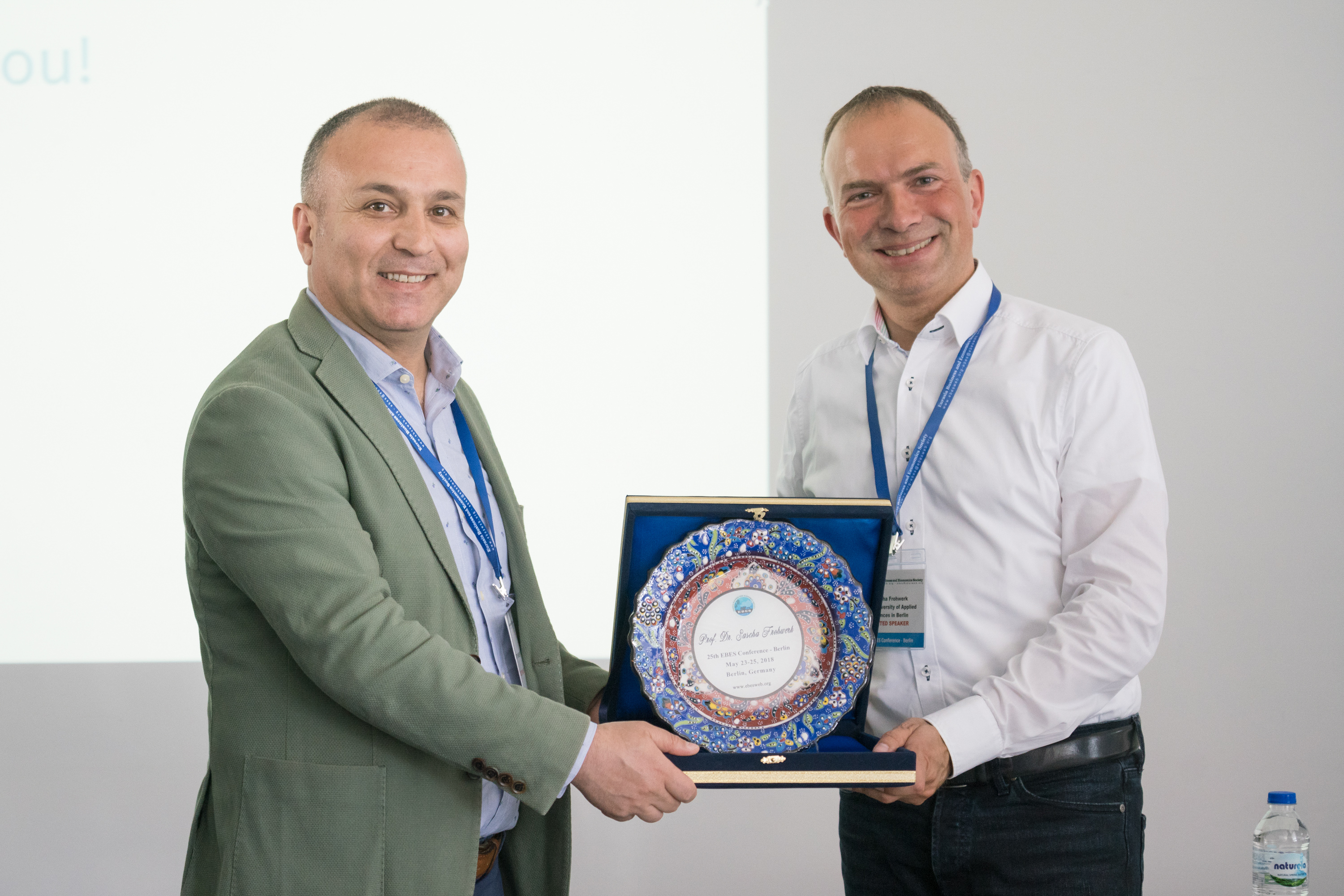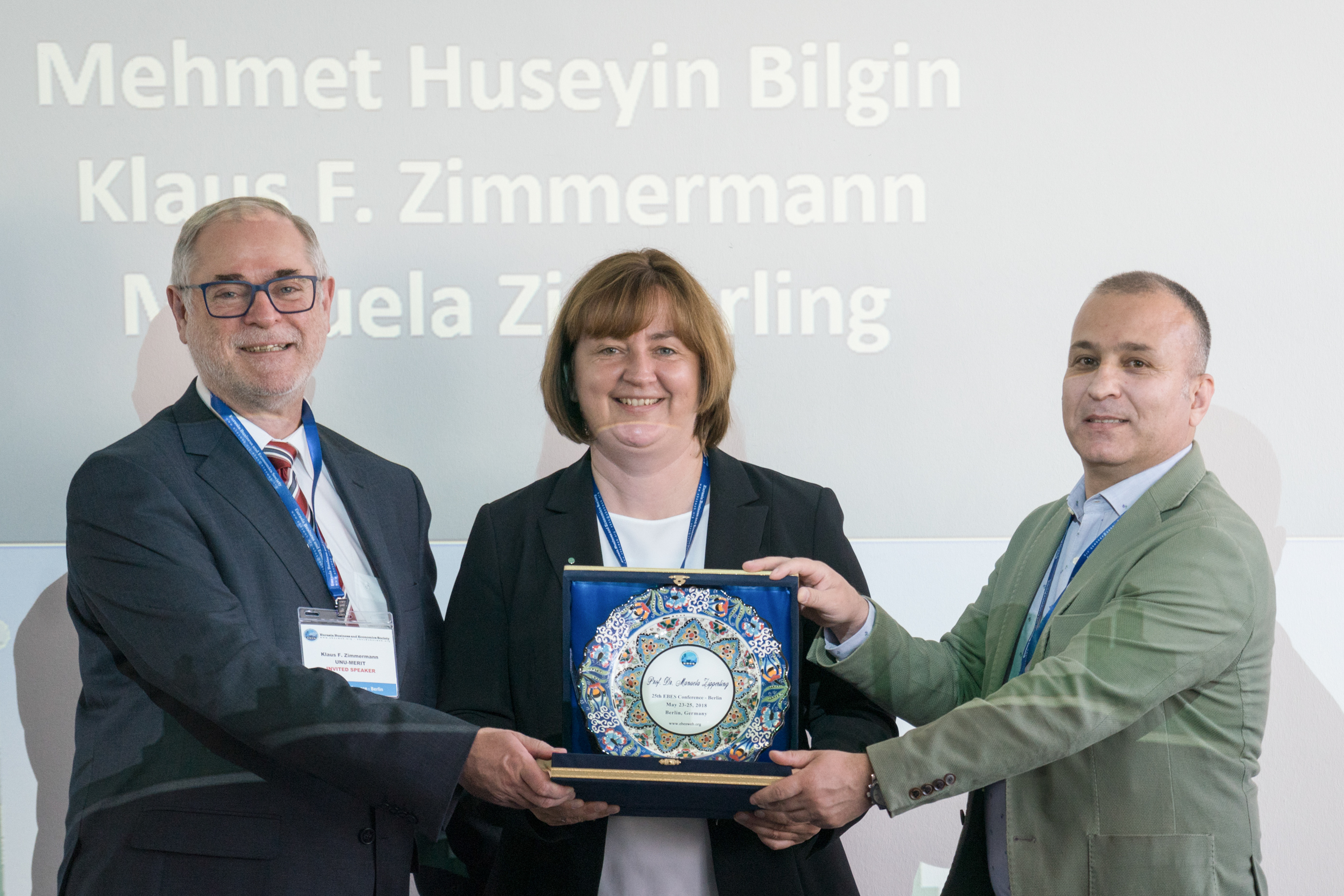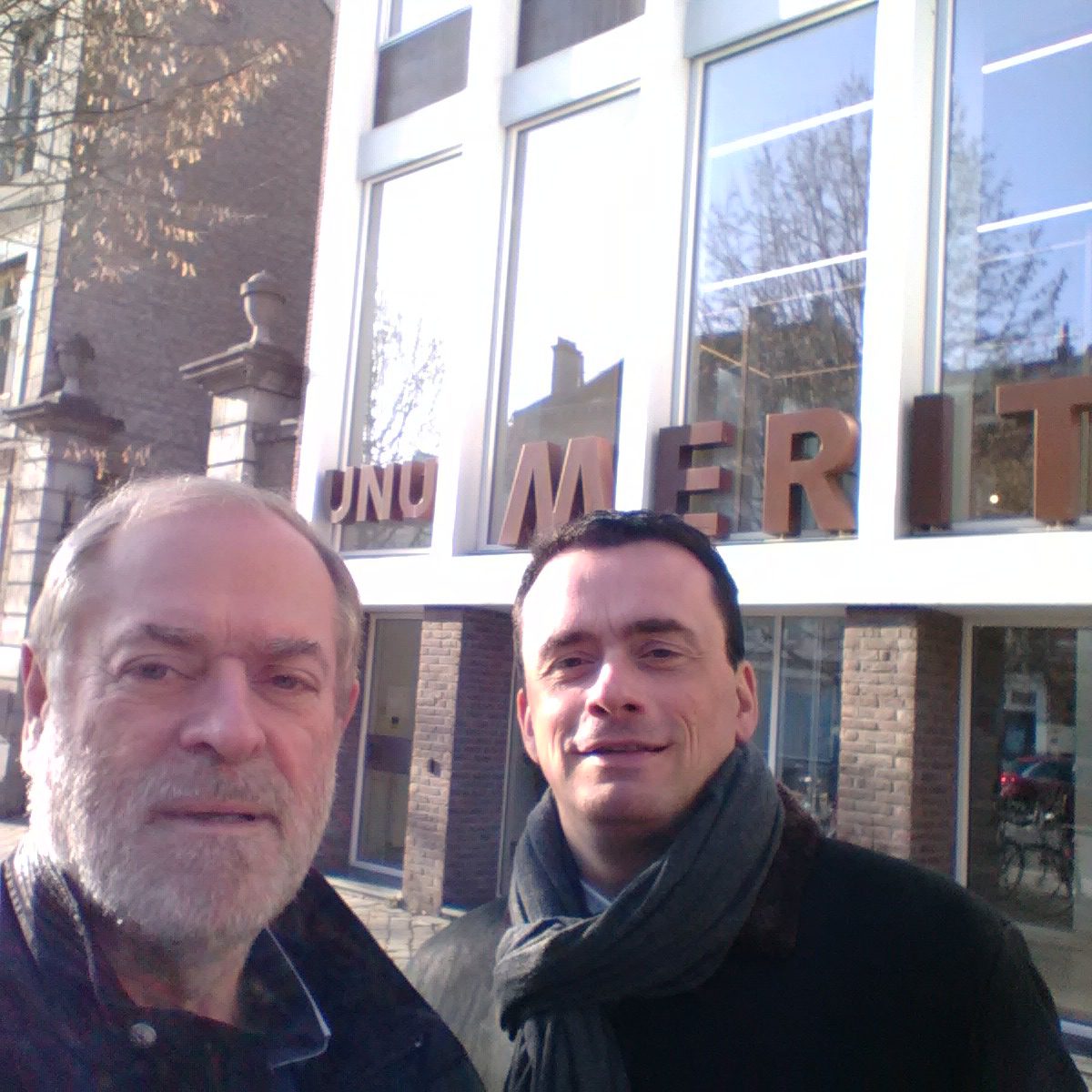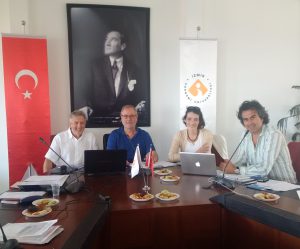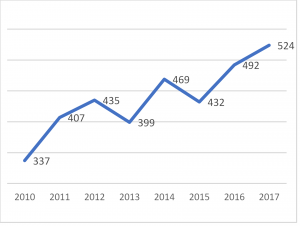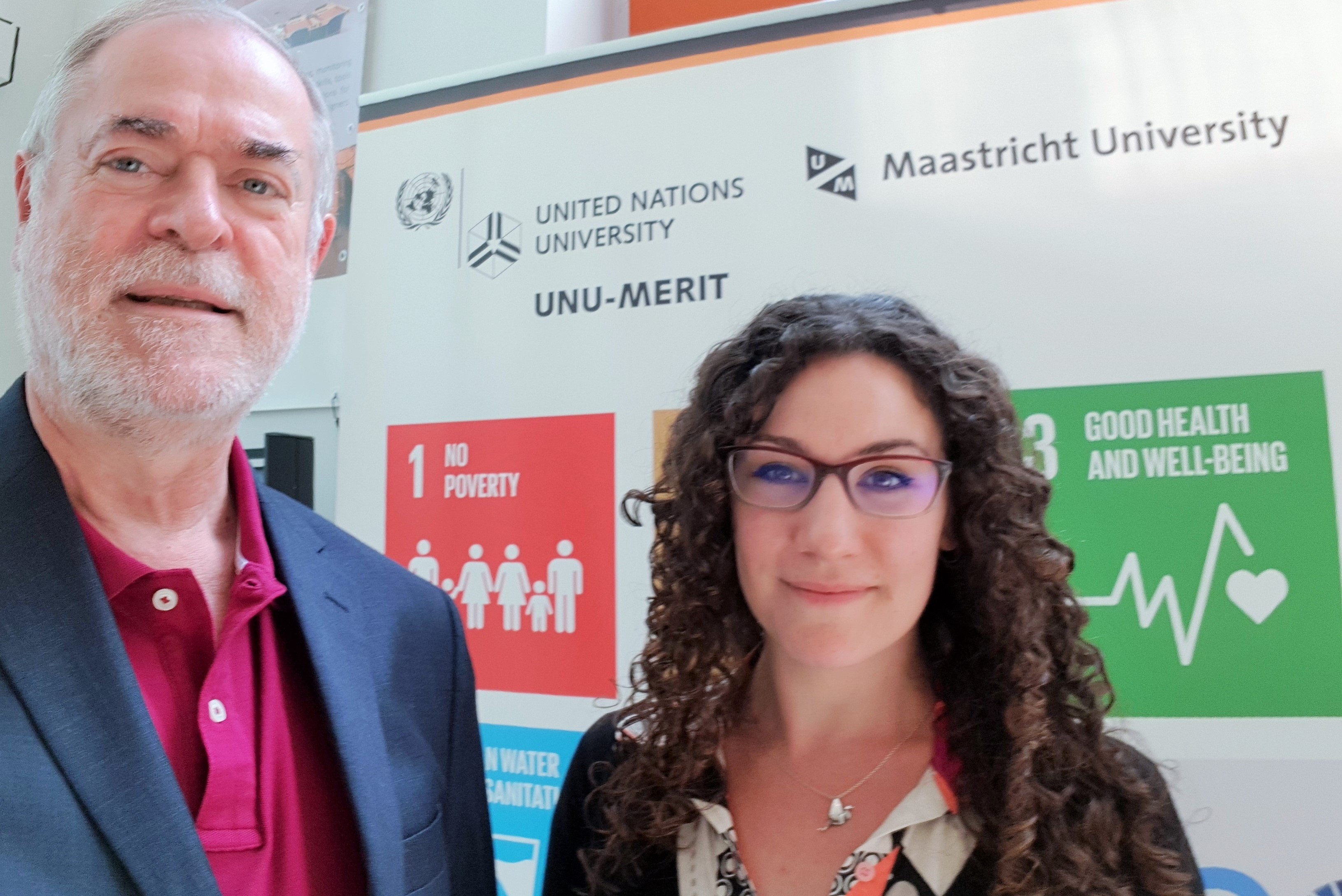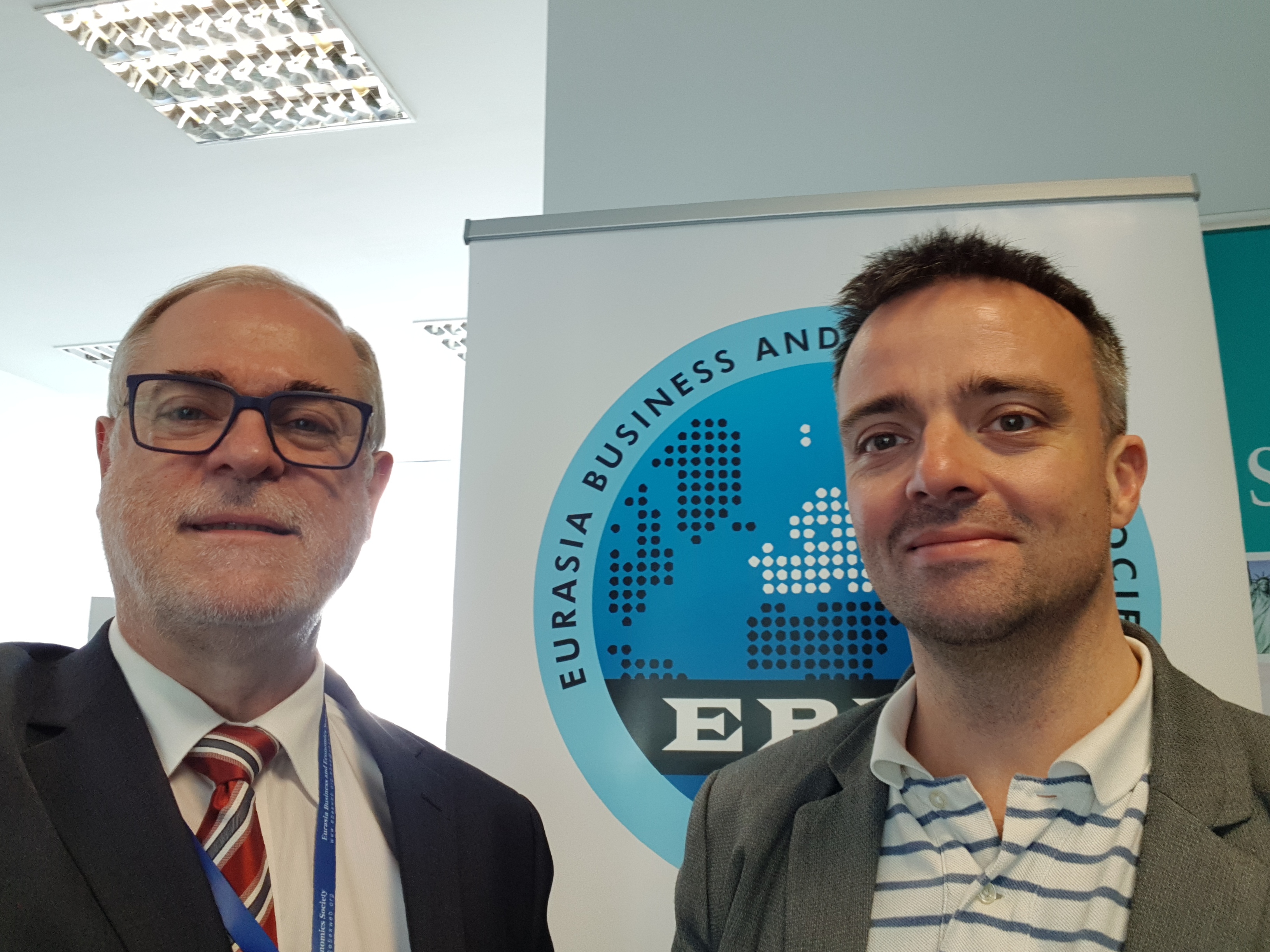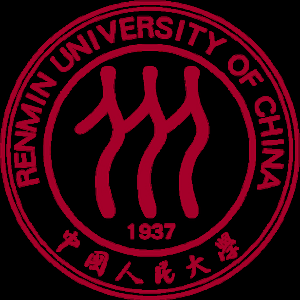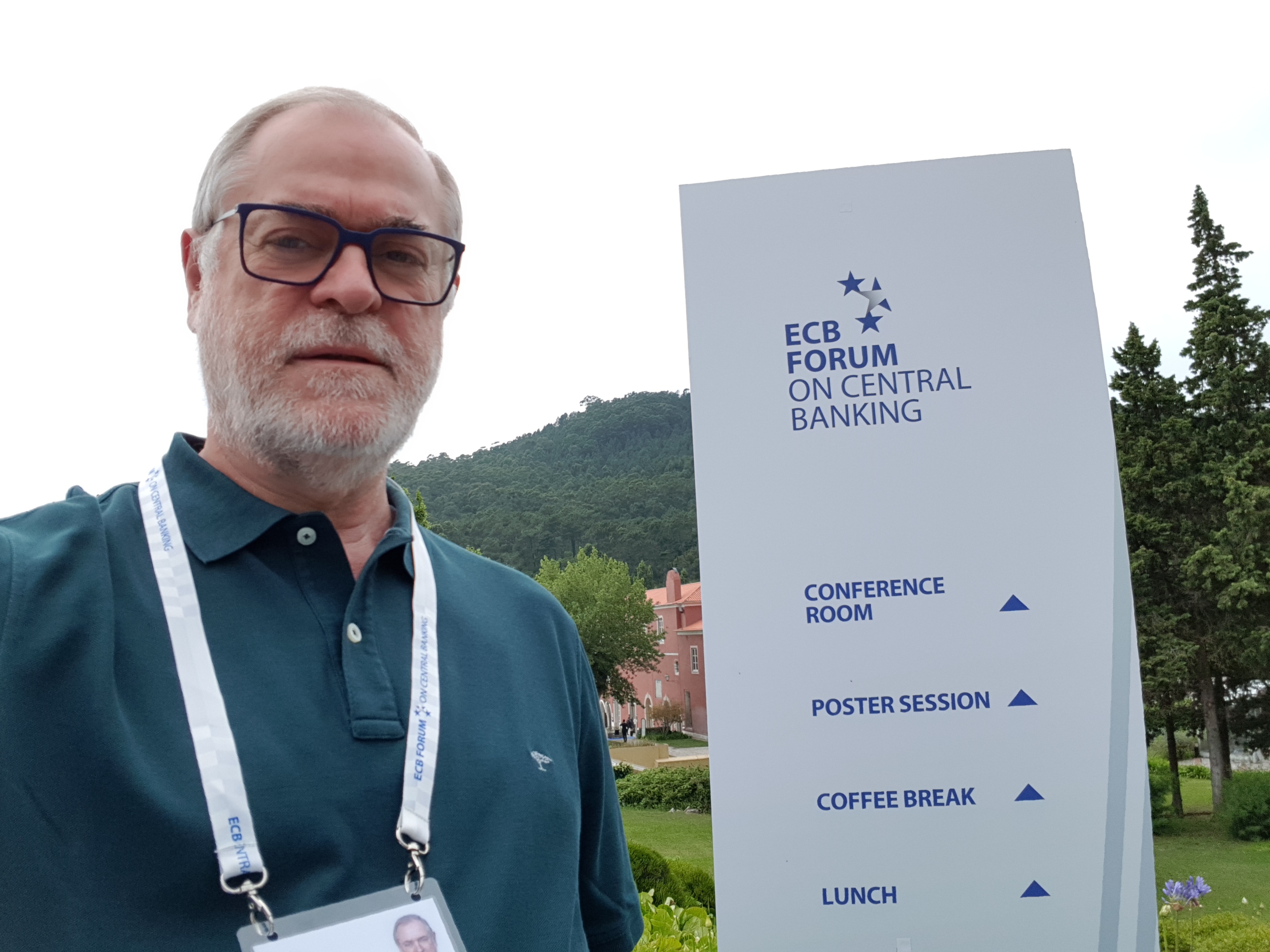On 1 July 2018, Oded Galor becomes Editor of the Journal of Population Economics following Erdal Tekin, who has taken the position of Editor-in-Chief of the Journal of Policy Analysis and Management (JPAM) (see for further details). Galor joins the editorial team consisting further out of Editor-in-Chief Klaus F. Zimmermann, Editors Alessandro Cigno and Junsen Zhang, and Managing Editor Michaella Vanore. Galor remains Editor-in-Chief of the famous Journal of Economic Growth. Galor, Tekin, Zimmermann, Cigno, Zhang and Vanore are all Fellows of the Global Labor Organization (GLO).
For an interview with Oded Galor on research and publication in population economics, see below.
Oded Galor (Herbert H. Goldberger Professor of Economics at Brown University) is the founder of Unified Growth Theory. He has contributed to the understanding of process of development over the entire course of human history and the role of deep-rooted factors in the transition from stagnation to growth and in the emergence of the vast inequality across the globe. He has pioneered the exploration of the impact of human evolution, population diversity, and inequality on the process of development and his interdisciplinary research has redirected research in the field of economic growth to the exploration of the long shadow of history and to the role of biogeographical and demographic forces in comparative economic development.

The Journal of Population of Economics is the top journal in the field of population economics. It is an international research journal that publishes original theoretical and applied contributions on the economics of population, household, and human resources. It is owned by Springer Nature and operates from POP at UNU-MERIT, Maastricht, The Netherlands. It is published in collaboration with the Global Labor Organization (GLO) and the European Society for Population Economics (ESPE).
The Journal of Population Economics is one of the top ranked Springer Nature journals in economics. In 2017 it has published 40 research papers out of 524 submissions, which implies a 92.4% final rejection rate. Submissions have significantly increased, eg. doubled in the last decade from below 300 to nearly 600 this year. The impact factor has increased from 0.5 in 2007 to an expected 1.3 in 2017. For more details of the actual performance of the journal see this post and the just published Report of the Editor-in-Chief 2018.


Oded Galor is the Founding Editor of the Journal of Economic Growth also owned by Springer Nature and will remain in the position of Editor-in-Chief of this outlet. The Journal of Policy Analysis and Management (JPAM) is the top field journal in public policy and published on behalf of the Association for Public Policy and Management (APPAM). It has been ranked number 21 for 2016 among economics journals by the impact factor (IF: 3.415) with Journal of Economic Growth rank 20 (IF: 3.440) and Econometrica rank 22 (IF: 3.379).
Oded Galor and Klaus F. Zimmermann see a large strategic benefit for both the Journal of Economic Growth and the Journal of Population Economics in this close collaboration.
As Editor-in-Chief Klaus F. Zimmermann, who is also the GLO President, stated:
“Oded is a legendary figure, both as top researcher and an admired journal editor. He has already served for decades as Associate Editor of the Journal of Population Economics and understands the relevance and context of our work. Sandro Cigno, Junsen Zhang, Michaella Vanore and I are very excited to work with him. We all share the same ambitions and the expectations to make the Journal of Population Economics an even more influential academic outlet of the field.”
Interview with Oded Galor
- What makes population economics an exciting field of analysis for a leading researcher in the field of economic growth?
Oded Galor: The transition from an epoch of stagnation to an era of sustained economic growth has marked the onset of one of the most remarkable transformations in the course of human history. While living standards in the world economy stagnated during the millennia preceding the Industrial Revolution, income per capita has undergone an unprecedented tenfold increase over the past two centuries, profoundly altering the level and distribution of education, health, and wealth across the globe. The rise in the standard of living has not been universally shared among individuals and societies. Variation in the timing of the take-off from stagnation to growth has led to a vast worldwide divergence in income per capita. Inequality, which had been modest until the nineteenth century, has widened considerably, and the ratio of income per capita between the richest and the poorest regions of the world has been magnified.
Throughout most of human existence, the process of development was marked by Malthusian stagnation. Resources generated by technological progress and land expansion were channeled primarily toward an increase in the size of the population, providing only a glacial contribution to the level of income per capita in the long run. Cross-country technological differences were reflected in variations population densities, and their effect on variation in living standards was merely transitory. In contrast, over the past two centuries, various regions of the world have departed from the Malthusian trap and have witnessed a considerable increase in growth rates of income per capita. The decline in population growth over the course of the demographic transition has liberated productivity gains from the counterbalancing effect of population growth and enabled technological progress and human capital formation to pave the way for the emergence of an era of sustained economic growth.
Thus, the pivotal role of population dynamics in the transition from Malthusian stagnation to sustained economic growth and the emergence of vast inequality across nations, makes the study of population economics central for the understanding of the growth process.
- What attracted a leading scholar in the field of economic growth to the Journal of Population Economics?
Oded Galor: In light of the importance of demographic forces in the understanding of the process of development and the vast inequality across the globe, the Journal of Population Economics is in a unique position to make a significant contribution in the understanding of this important relationship.
- What kind of research do you wish to attract to the Journal of Population Economics?
Oded Galor: I would like to encourage the submission of research papers that are centered around:
- The causes and the consequences of the demographic transition
- Population diversity and economic development
- Human evolution and the process of development
- The interaction between population and economic growth
- Population dynamism in the Malthusian epoch
**********************************************************************
Picture below: Managing Editor Michaella Vanore and Klaus F. Zimmermann working intensively together for the Journal of Population Economics at UNU-MERIT, Maastricht.
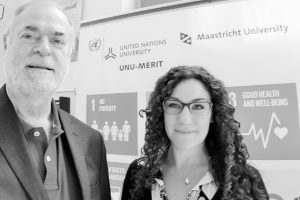

Ends;




